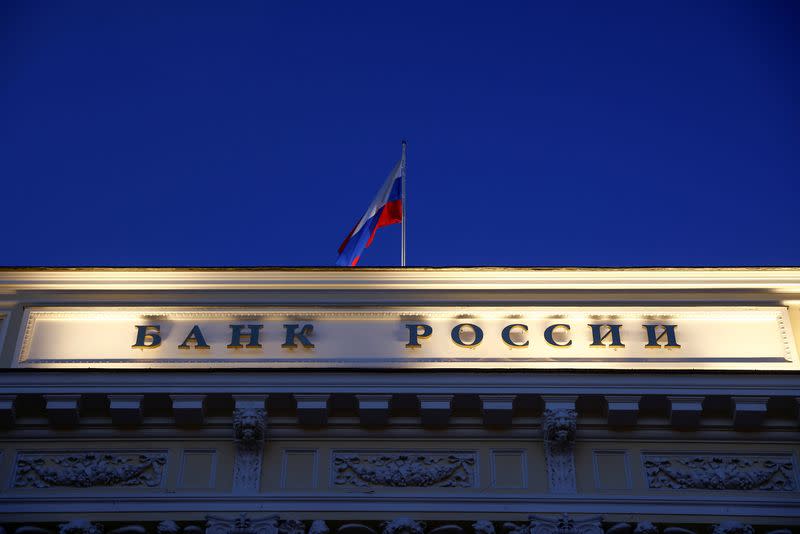Russian consumer prices drop for 10th week as rate-setting meeting looms
(This content was produced in Russia where the law restricts coverage of Russian military operations in Ukraine)
MOSCOW (Reuters) - Russian consumer prices fell for a 10th straight week, led by a drop in prices for some staple vegetables, data showed on Wednesday, just two days before the central bank is expected to trim interest rates for the sixth time this year.
Sluggish consumer demand and the rouble's strength over the past few months have also slowed inflation. The consumer price index dipped 0.03% in the week to Sept. 12 after easing 0.13% a week earlier, the federal statistics service Rosstat said on Wednesday.
Annual inflation slowed to 14.06% as of Sept. 12 from 14.08% a week earlier, the economy ministry said.
The decline may cement expectations that the Bank of Russia will cut its key interest rate again on Friday. A majority of economists polled by Reuters expect the central bank to cut by 50 basis points to 7.5%, to encourage lending as inflation continues to slow.
Data earlier on Wednesday showed Russian households' inflationary expectations, an indicator the central bank said it would watch closely in the run up to meetings in September and October, rose for the second month running.
Dmitry Dolgin, chief economist for Russia and CIS at ING, told Reuters that their base-case scenario for a 50-basis-point cut is unchanged.
"But if before the alternative scenario was a 75-basis-point cut, then now... the central bank will choose between a cut of 50 and 25 basis points," Dolgin said.
Despite the recent incremental declines in the CPI, prices for nearly everything, from milk and sugar to clothes and smartphones, have soared since Feb. 24 when Russia sent tens of thousands of troops into Ukraine.
In the year to date, prices for foreign-made cars, sanitary pads, soap and margarine have jumped by around 40%, with the headline consumer price index up 10.27% compared with a 5.32% increase in the same period of 2021, Rosstat data showed.
High inflation has been a key concern for households for years as it dents their spending power and living standards, and this year will be aggravated by a recession in the economy, although forecasts have gradually become more optimistic, with higher prices for Russia's oil exports cushioning the impact of Western sanctions over Ukraine.
(Reporting by Alexander Marrow, Darya Korsunskaya and Elena Fabrichnaya; editing by Jonathan Oatis and Deepa Babington)



